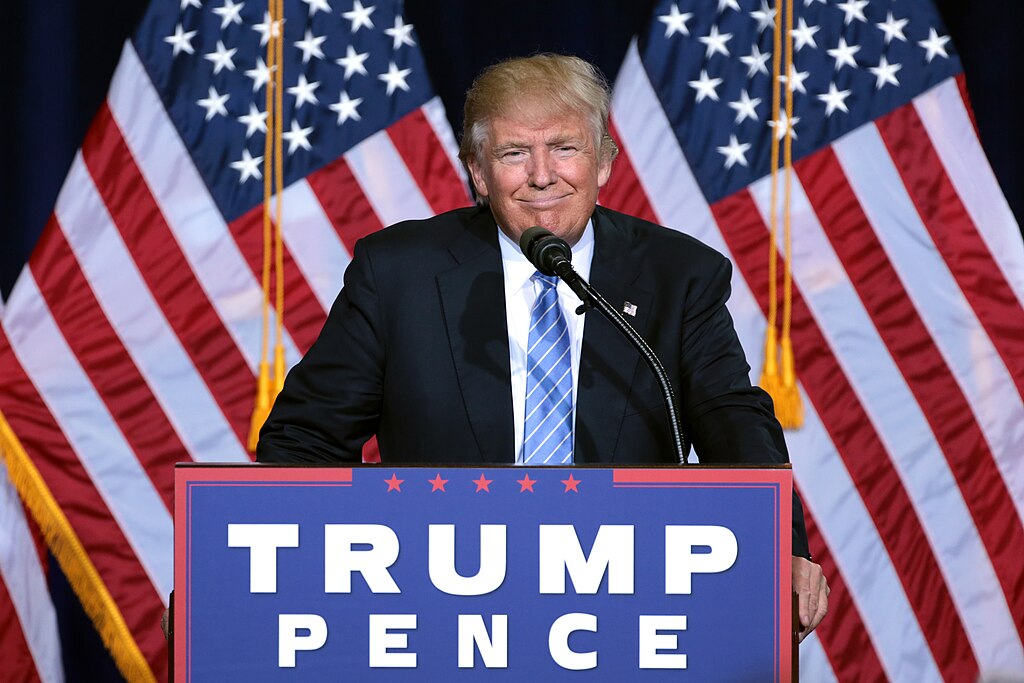Former President Donald Trump is making an assertive final push across battleground states just days before the election, holding rallies and public events to energize his base. With stops in Pennsylvania, Michigan, Georgia, and North Carolina, Trump’s campaign is focusing on states he aims to flip, particularly in areas known as the “blue wall” states and the Sun Belt. The effort underscores Trump’s high-stakes strategy to secure critical electoral votes and reclaim the White House.
Trump’s campaign has prioritized Pennsylvania, where he held a rally in Lititz. The event, however, was not without challenges, as some attendees and observers noted missteps and negative reactions that could hinder his momentum in this crucial swing state. The Lititz rally’s response raised questions about Trump’s resonance with undecided voters who may prove pivotal in tipping Pennsylvania’s electoral outcome.
Trump also held a significant rally at Madison Square Garden in New York City, drawing large crowds that showcased strong support from his base. However, the event was marked by a series of controversial statements, including remarks some described as crude and racially insensitive. Critics argue that this approach could alienate moderate and undecided voters, particularly as Trump’s critics highlight these remarks as evidence of divisive rhetoric. Supporters, however, view the large turnout as a testament to Trump’s enduring appeal and ability to galvanize his base.
Throughout his final campaign blitz, Trump has maintained a rhetoric focused on themes of personal grievances and unsubstantiated claims of election cheating. His public statements often include attacks on his opponent, Vice President Kamala Harris, whom he portrays as unfit for leadership. Trump’s messaging has consistently framed the election as a battle between his “America First” leadership and what he depicts as a dangerous alternative represented by Harris and the current administration. Critics argue that his confrontational style risks alienating undecided voters who may find such rhetoric unsettling.
In contrast, Harris’s campaign has been focused on unity and policy-driven discussions, addressing issues like international relations, including the Israel-Hamas conflict, and domestic challenges. Harris’s approach is seen by her supporters as a stark contrast to Trump’s confrontational style, aiming to appeal to voters seeking stability and forward-looking leadership.
The media reaction to Trump’s rallies has been mixed. Supporters and conservative commentators view his events as evidence of unwavering support and grassroots enthusiasm. Meanwhile, critics and some media outlets highlight the divisive elements of his speeches as a potential flaw in his strategy, pointing to incidents like the controversial Madison Square Garden rally as examples of his polarizing campaign approach.
Trump’s rallies also reveal heightened security measures, including the use of bulletproof glass, as he noted concerns over potential threats. In one comment, Trump said he “wouldn’t mind if someone shot through the fake news” to reach him, a remark that critics labeled as incendiary while supporters interpreted it as a symbolic rebuke of the media.
As Trump’s campaign heads into Election Day, his strategy of energizing his base with bold, provocative messaging could be decisive. Yet, the question remains: Will his rhetoric mobilize undecided voters or turn them away?



 UAE Plans Temporary Housing Complex for Displaced Palestinians in Southern Gaza
UAE Plans Temporary Housing Complex for Displaced Palestinians in Southern Gaza  Ukraine-Russia Talks Yield Major POW Swap as U.S. Pushes for Path to Peace
Ukraine-Russia Talks Yield Major POW Swap as U.S. Pushes for Path to Peace  Trump Endorses Japan’s Sanae Takaichi Ahead of Crucial Election Amid Market and China Tensions
Trump Endorses Japan’s Sanae Takaichi Ahead of Crucial Election Amid Market and China Tensions  Trump Allows Commercial Fishing in Protected New England Waters
Trump Allows Commercial Fishing in Protected New England Waters  Nighttime Shelling Causes Serious Damage in Russia’s Belgorod Region Near Ukraine Border
Nighttime Shelling Causes Serious Damage in Russia’s Belgorod Region Near Ukraine Border  New York Legalizes Medical Aid in Dying for Terminally Ill Patients
New York Legalizes Medical Aid in Dying for Terminally Ill Patients  U.S. Lawmakers to Review Unredacted Jeffrey Epstein DOJ Files Starting Monday
U.S. Lawmakers to Review Unredacted Jeffrey Epstein DOJ Files Starting Monday  Marco Rubio Steps Down as Acting U.S. Archivist Amid Federal Law Limits
Marco Rubio Steps Down as Acting U.S. Archivist Amid Federal Law Limits  U.S. to Begin Paying UN Dues as Financial Crisis Spurs Push for Reforms
U.S. to Begin Paying UN Dues as Financial Crisis Spurs Push for Reforms  U.S. Sanctions on Russia Could Expand as Ukraine Peace Talks Continue, Says Treasury Secretary Bessent
U.S. Sanctions on Russia Could Expand as Ukraine Peace Talks Continue, Says Treasury Secretary Bessent  Trump Allegedly Sought Airport, Penn Station Renaming in Exchange for Hudson River Tunnel Funding
Trump Allegedly Sought Airport, Penn Station Renaming in Exchange for Hudson River Tunnel Funding  Ohio Man Indicted for Alleged Threat Against Vice President JD Vance, Faces Additional Federal Charges
Ohio Man Indicted for Alleged Threat Against Vice President JD Vance, Faces Additional Federal Charges  Trump Rejects Putin’s New START Extension Offer, Raising Fears of a New Nuclear Arms Race
Trump Rejects Putin’s New START Extension Offer, Raising Fears of a New Nuclear Arms Race  Newly Released DOJ Epstein Files Expose High-Profile Connections Across Politics and Business
Newly Released DOJ Epstein Files Expose High-Profile Connections Across Politics and Business  Missouri Judge Dismisses Lawsuit Challenging Starbucks’ Diversity and Inclusion Policies
Missouri Judge Dismisses Lawsuit Challenging Starbucks’ Diversity and Inclusion Policies  Trump Signs “America First Arms Transfer Strategy” to Prioritize U.S. Weapons Sales
Trump Signs “America First Arms Transfer Strategy” to Prioritize U.S. Weapons Sales 




























